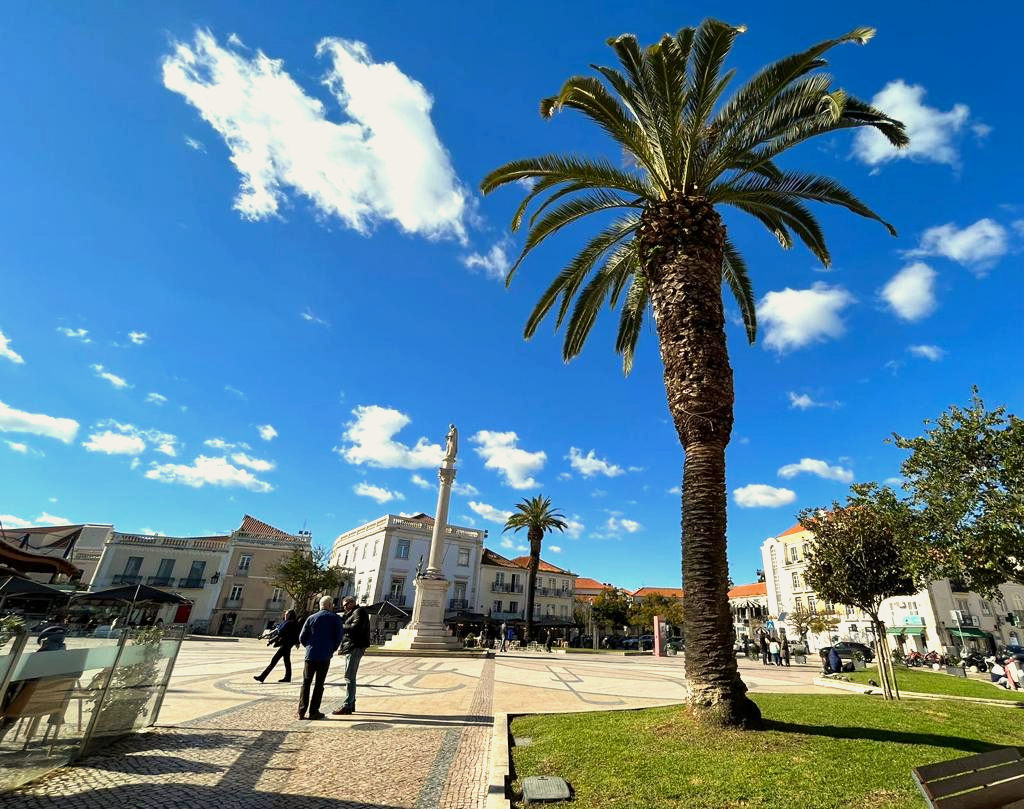
29 Oct Setúbal
Setúbal is located 35 mins south of Lisbon, on the north bank of the Sado River Estuary. The city has been always connected with the Ocean and it was one of the most important centers for the fishing industry specialised in processing and exporting sardines. Setúbal is a city located in the Arrábida Mountains with natural landscapes, which blend between beautiful beaches and mountains covered by preserved vegetation, which makes the scenery even more stunning. Being a coastal city in the south of the country, the temperate climate allows for pleasant walks even in the cold months of December and January when the maximum temperatures are around 15ºC and to enjoy sunbathing and the beach in the summer with maximum temperatures around 30ºC in August.
This city dates back to the Roman period, which left a very important historical and cultural legacy with centuries-old buildings and constructions. In Setúbal’s Historic Centre, each street, building, façade, pavement, or balcony is a piece of the city’s memory.
Today, Setubal is at the heart of the Portuguese sardine industry and is famed for it’s sweet and globally acclaimed moscatel wine. Its pedestrian streets, fountains and gardens lend it a certain grace, although its still very functioning harbour certainly dominates giving it the feel of a still thriving historic town.
Setubal lies at the mouth of the river Sado on the coast just below Lisbon and opposite the beautifully filigree sandy Troia Peninsula, which protects it further from the often tempestuous Atlantic. The ancient Roman town of Cetobriga lies buried under the sands here. Once a prosperous fishing and fish-salting town, Certobriga was destroyed by an earthquake and the ensuing tidal wave in the 5th century. In the past century remnants of the town, including vestiges of its salting industry have been uncovered and can be visited. However, Troia nowadays is predominantly a large-scale tourist complex with many apartments, facilities and available activities to compliment its glorious beaches.
Dolphins in the Wild
The Sado estuary is home to a pod of 28 bottlenose dolphins. Sheltered from the Atlantic Ocean with an abundant supply of food, this is one of the few places in the world where a pod of dolphins actively lives within a freshwater estuary. Watching the dolphins in their natural habitat as they swim, hunt, and play is an unforgettable experience to be enjoyed by people of all ages.
Lisbon to get new airport in 2035
The Portuguese government has decided that the Alcochete airport south of Lisbon will be operational in 2035, replacing the Humberto Delgado airport in Lisbon. Travel time from the new Lisbon international airport to Setúbal will be approximately 25 minutes.
High Speed Train Travel from London to Lisbon Could Be Coming Soon
A new era for rail travel is on the horizon with the dawn of high speed trains. Along with several other exciting plans, (some of which have already been set in motion), there now could be a new high speed train route from London to Lisbon.


No Comments